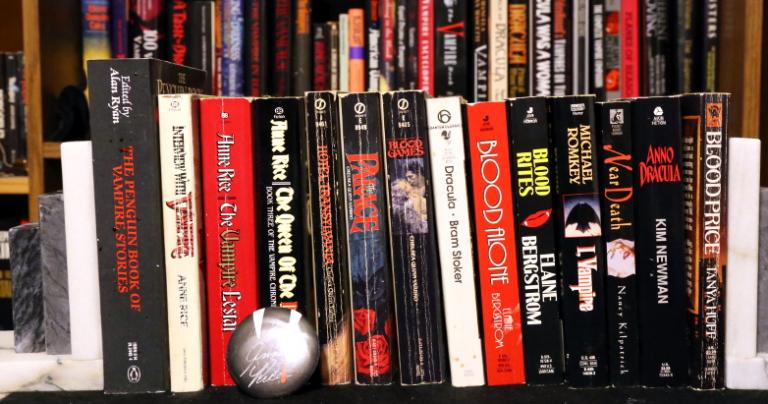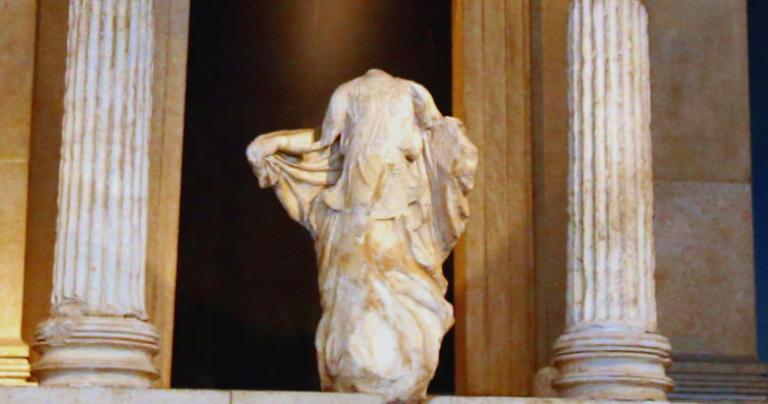Recently someone contacted me privately and asked about “the Druid position on suicide.” No matter how innocently and neutrally anyone phrases it, when someone asks about suicide my first thought is that they’re contemplating doing it.
Of course, there is no Druid position on suicide. The ancient Druids left us almost nothing in the way of teachings, and certainly nothing on this. If the various Druid orders have an official position, I haven’t heard it. I doubt they do, and if they did they’d be all over the map.
Trite responses do more harm than good. “You have so much to live for” may be true, but saying it in that moment sounds like a lie, and tells the person you really don’t understand what they’re going through. “Think of how bad your family will feel when they find your body” is even worse, adding to the guilt of someone who likely already feels the world would be better off without them.
I’m a Druid, not a psychologist. I can’t diagnose psychological conditions and I certainly can’t provide treatment. But I can tell my own story.
I don’t talk about this stuff much. It isn’t pleasant, and I always feel like I’m begging for sympathy or bragging about what I’ve done. But sometimes hearing someone else’s story can be helpful, so I’m going to tell it.
I’ve had suicidal thoughts throughout my life. I’ve never attempted it, and I’ve never started to attempt it. But I’ve planned it, and at times the thoughts that I should kill myself have been virtually non-stop.
A miserable child: escape plans
In the interests of being fair to my family, let me be very clear. I didn’t grow up in a violent home, or a in violent neighborhood. I wasn’t abused, certainly not by the standards of the day. I had a very stable home and my family gave me a good foundation to build on, and I did.
As best I remember (from my own memories and the stories of my parents) I was happy and curious as a small child. I did very well in school and I enjoyed life. That all changed at age 9.
I started growing up. School became boring, and then the bullies found me. I tried to play sports and realized I sucked. I resented my father’s insistence that I cut my hair short, and I hated working in his “garden” that was more like a small farm. I started realizing just how much I disagreed with what was being preached at the Baptist church where we went, and I hated being dragged there Sunday mornings, Sunday evenings, and Wednesday evenings. And worst of all, I was powerless to do anything about it. I was a child, dependent on my parents and subject to their restrictions, and subject to all the legal restrictions our society places on children.
I was miserable. I can’t remember the first time I thought I’d be better off dead, but by the time I was a teenager the thoughts came on a regular basis.
I didn’t really want to die. I just wanted out.
Teenagers are known for making impulsive decisions with no thought to their long-term consequences. I knew some kids ran away from home, but I also knew their lives were worse than mine. I had to survive until I could go away to college.
I started making plans. School may have been boring and stressful, but it was my ticket out, so I made sure I did as well as I could. I took tests, filled out applications, and applied for scholarships. When things got bad, when I started feeling like I’d be better off dead, I remembered that my “prison sentence” had a fixed ending.
In what is still the greatest magical working of my life (though I would not have called it that at the time) I got a scholarship to Tennessee Tech. I moved 100 miles away from home, and I was in college, not high school. Things got better, and the thoughts of suicide faded.
A suburban misfit: goths and vampires
By my late 20s, my escape plan was complete. I had one college degree and I was working on a second. I was married, had a house, a good professional job, and a few good friends. So why was I miserable again?
My job was a good way to make a living, but it was a job – it didn’t provide the satisfaction I expected it would. And it became obvious that without a single-minded dedication to my job, I was never going to become a corporate executive, and I would never get rich. Meanwhile, a good friend was dedicated to his job, and he was getting rich. I felt like a failure.
Objectively, I knew I was better off than most people in this country, much less in the rest of the world. That didn’t matter – I didn’t have what I thought I was supposed to have, so I felt like a failure. The people who told me how lucky I was didn’t understand and they made things worse.
Was I clinically depressed at this point? Possibly. I tried counseling, first with a minister, then with a professional counselor. It didn’t help. They tried to make me happy with my life as it was. But I wasn’t happy with it and I didn’t want be happy with it. I wanted to change it. And I didn’t see how I could do that.
This was as close as I ever came to actually killing myself. I thought about it constantly, and at one point I started making plans. But before I got too far I realized that I didn’t want to die – I just wanted to stop hurting.
Some people self-medicate with drugs or alcohol. I self-medicated with vampire books and movies, and with gothic music. I’ve always had an interest in horror and the macabre, and I’ve been fascinated with vampires ever since I saw the original Dark Shadows at age 5. I re-read the early Anne Rice novels, Dracula, and pretty much everything else I could get my hands on. I discovered Bauhaus, Siouxsie and the Banshees, and the Sisters of Mercy. I never really adopted gothic fashion (I don’t like standing out, and besides, I’m too lazy), but I added a lot more black to my wardrobe (and it’s still there).
It wasn’t “real” and I knew it. But it felt good to escape and fantasize. And when I found others who shared my interests, I felt like I honestly belonged. I wasn’t a failure anymore. I was a dark soul who managed to navigate the mundane world.
Goths and vampires kept me sane, and they kept me alive.
A resigned adult: embracing my true self
In my early 30s I had my job from hell – a bad job in a bad place working with some genuinely bad people. It was the first time I encountered the quote:
Before you diagnose yourself with depression or low self-esteem, first make sure that you are not, in fact, just surrounded by assholes.
There were times when my wife was worried about me trying to kill myself. As miserable as I was, though, I wasn’t thinking about suicide so much as I was thinking about escape. When I did – after 2 years 4 months and 9 days, not that anybody was counting – things got better.
But before long, my good new job turned stressful. My nice new house started falling apart. And the one thing that brought me real satisfaction – running – caused injuries that brought me intense physical pain and would soon make me stop. I had a taste of happiness, and then it was taken away. I never seriously considered killing myself, but the thought that I should kill myself became ever-present again.
Before I could fully process that, my job in Atlanta (where I had always dreamed of living) went away and I moved to Texas. I finally resigned myself to the fact that 1) I was never going to find satisfaction in a job, 2) I was never going to be rich, and 3) even if I was, I’d still be dealing with the same problems.
If becoming a rich, successful, corporate executive wouldn’t bring me happiness, what would?
My friends and my regular readers know that religion, spirituality, and magic have always been important to me. But much of my time was spent fighting bad religion. I had finally found the path that called to me, and shortly after I moved to Texas I had the epiphany that convinced me to follow it in depth. It was the best decision I ever made.
It took me almost 40 years to accept that what I had always been told I was supposed to want wasn’t what I really wanted. Better late than never. Since I’ve been following this Pagan path in earnest, thoughts of suicide have faded.
But they didn’t completely go away.
Lingering impulses: the Headless Rite
My Pagan studies and practices have provided context and meaning for my life. I’m doing good, necessary, and sacred work. People tell me how much they appreciate my writing, and that means the world to me.
I still have to chop wood and carry water.
My paying job is mostly low key with reasonable expectations. But it is a job and at times it gets stressful. Occasionally it gets very stressful. And sometimes my response to extreme stress is “I should just kill myself and be done with it.”
These thoughts aren’t the same as the suicidal thoughts I had when I was younger. It’s more an automatic response than a real desire to end it all. But thoughts can and do lead to actions, and I don’t want to even start down that path anymore. And besides, it’s a tiring way to live.
I’ve had lots of good things to say about The Chaos Protocols. It really is what its subtitle says it is: “magical techniques for navigating the new economic reality.” Much of what’s in it I had already done – the rest I started doing. And I was intrigued by the idea of “becoming invincible.” Author Gordon White describes that as “the process of immunising yourself against the monoculture.” He’s mainly talking about materialist assumptions and consumer culture.
My early suicidal thoughts were because I felt trapped, and because I felt like a failure. I escaped, and I found my true calling in life. After that, suicidal thoughts came because I felt like I couldn’t handle what life was throwing at me, like it would be better to die than to deal with it – even though I knew I had dealt with everything life had thrown at me so far.
What is becoming invincible but knowing in the depths of your soul that you can handle anything that comes your way?
Gordon recommends two ways to become invincible. One is entheogens. I’m fascinated by some of the results reported by those who’ve taken ayahuasca and psilocybin – in the right context, they look very promising for the treatment of depression. But they are illegal and therefore difficult to obtain in the United States, and quite frankly, hallucinogens scare me. A small percentage of people report seeing things that might send me over the edge. I can already “see” most spiritual beings without the use of chemicals – I don’t want to risk running into giant insects while my mental and psychic abilities are impaired.
The other path to invincibility is the Headless Rite.
Gordon says this is a spell to “get their attention” and to “claim your place at the table.” It’s one of the spells from the PGM – the Greek Magical Papyri. Aleister Crowley called it the “Bornless Rite” – Gordon and others have shown this is a mistranslation. In 1904, Crowley performed it inside the Great Pyramid of Egypt. You could do that in those days, if you were an Englishman with money.
I’m declining to participate in the grimoire revival because of my need to make a clean break with Christianity. Crowley’s version of the Headless Rite has a clear Christian context. I re-Paganized it. I generally argue against taking things out of their native context, but the PGM was written in a religiously plural environment that was more polytheist than monotheist. Turning it into something I could use felt both appropriate and necessary.
I performed the Headless Rite with the assistance of two fellow priests. I added my own bit to the end: I re-pledged myself to the Gods with whom I am most closely affiliated. The next morning, I wrote this in my private journal:
This morning it hit me what I’ve done: I invoked and identified myself with the First Spirits of the Universe. And then I literally turned around and pledged my loyalty to the deities I’m associated with. I claimed my seat at the table, then put myself under the protection of six deities who know me.
Most people do the Headless Rite periodically – it’s more like the LBRP than a “once and done” thing. I only did it once, but I did rehearse it multiple times before I performed it for real. Four months later, I wrote:
Something occurred to me today: I don’t think I’ve had the first suicidal thought since the Headless Rite.
Am I invincible? As I wrote in my post on Fear, Experience, and Becoming Invincible, no. The thought that killing myself would be better than dealing with whatever is in front of me does cross my mind from time to time. But it’s not an ever-present thought anymore, and on the rare occasion it occurs, it’s immediately followed by the thought that “no, I can do this, and in any case I don’t want to die.”
Would the Headless Rite have ended my thoughts of suicide if I had done it as a miserable child or as a suburban misfit? I don’t know. Until I had the proper context for it, I tend to think not. But maybe it would. All I know is that when I did it, it worked.
TL;DR Summary
This is one of my longest blog posts ever, and I really can’t trim any of it. So here’s a “too long; didn’t read” summary.
- Telling people who are hurting how good they really have it is counterproductive. Even if it’s true at some level, they can’t hear you through their pain.
- This is my story. If it resonates with you, great – that’s why I wrote it. If not, keep looking until you find what does.
- If you need mental health care, get it. If your doctor prescribes medication, take it.
- If you feel trapped, make an escape plan, and then work the plan.
- If you feel like a failure, keep looking till you find what it is you’re called to do and be. Odds are good you already have some idea what that is. You just need to accept it even though it’s not what you’ve always been told you’re supposed to do.
- While you’re doing that, find what brings you pleasure and joy and embrace it, no matter how silly or fantastical or escapist. I rarely quote the Wiccan Rede, but it fits here: “an it harm none, do as you will.”
- If you feel like dying would be better than dealing with life, realize that you’re stronger and more resilient than you think. If you need magical rites to convince you of that – or to help you get there – do them.
There have been many times when I felt like suicide was my best option. But I never tried it, and I’m very glad I didn’t.
If you need help now
There is a difference between thinking about killing yourself and making plans to kill yourself. The first is fairly common and can be dealt with in its proper time. The second one needs immediate attention.
Text 741741 from anywhere in the USA to text with a trained Crisis Counselor. This is for anyone, in any crisis, 24/7, who needs a trained and compassionate ear, even if you’re not actively suicidal.
If you need more than they can provide, contact the National Suicide Prevention Lifeline at 1-800-273-8255. There are other numbers to speak in Spanish, for the deaf or hard of hearing, and special numbers for veterans in crisis and for those dealing with disaster distress.




















